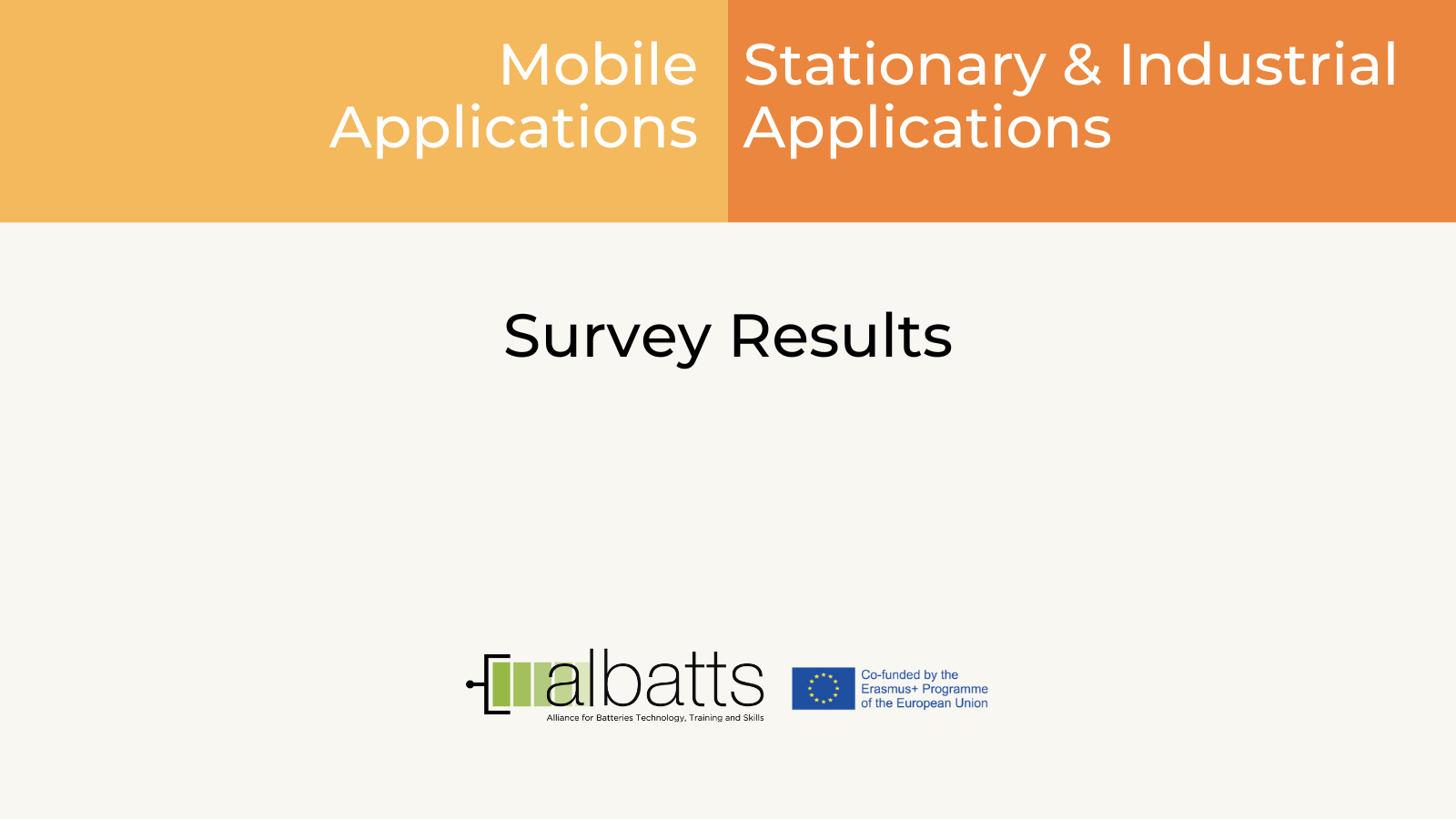news


D4.2 & D5.2 Survey Results
We have just published two surveys we did to our stakeholders, registered in the ALBATTS and the DRIVES project database, made between December 2020 and February 2021. The surveys were part of intelligence activities, and their main goal was to gather information about job roles and skills needed to build a complete battery value chain in Europe, in mobile and stationary applications
Social networks, contacts in battery relevant projects and associations were used to promote the surveys and increase the redemption. Altogether, 98 responses were received that are deemed usable.
The majority of respondents belong to companies, followed by educational institutions. From the NACE codes perspective, the highest number of respondents belong to “manufacturing of batteries and accumulators“, “manufacturing of motor vehicles“ and “maintenance and repair of motor vehicles“. From the value chain perspective, entities active in “battery integration“ were the most strongly represented, followed by entities relevant to “components and cell manufacturing“ value chain stage.
According to the respondents, the battery sector seems to be mostly driven by "climate goals, regulation and environmental challenges“ in the long term perspective (while globalisation/global competitiveness is considered to be the most urgent driver), with “charging infrastructure deployment“, access to “raw materials“ and “cybersecurity“ being listed among the dominating factors.
Information gathered by these surveys will be further processed and analysed in D3.4 - Survey Results for Battery Sector report and when forming the sectoral intelligence deliverable, which is ultimately the roadmap for the battery sub-sector.
You can read the full reports here:
D5.2 Survey results for sub-sector Mobile Applications of Batteries
D4.2 Survey results for sub-sector Stationary and other Industrial Applications of Batteries

